- Home
- Chris Ryan
Firefight Page 4
Firefight Read online
Page 4
'You don't.'
*
Will's request to head home and pick up a few things was denied and once the gun had been politely but firmly removed from him by one of the spooks, he was escorted to the waiting car. Its windows were blacked out and its interior plush, but Will felt uncomfortable as he sat in the back next to Pankhurst, while the spooks sat up front. Barely a word was exchanged as they sped up the motorway towards London.
As they travelled, Will gazed through the darkened window at the scenery speeding by. He had not left Hereford for two years - he felt as if there were an invisible bond tying him to that lonely gravestone, as though moving too far from it was a betrayal of sorts. Driving towards London, the place where they had died, seemed wrong. Funny, he thought to himself, how he could spend half his life in theatres of war in the most godforsaken parts of the world, yet a simple trip to London could put him on edge.
Then he looked around him. The director of MI5 was sitting next to him; two spooks were up front. He had to remind himself that actually, this was anything but a simple trip to London. What could they possibly want with him? All he knew how to do was fight and there must be a hundred other people - highly trained and still in service - who could do that as well as him. No matter how hard he thought about it, he simply couldn't work out Pankhurst's game plan.
It took two hours to get to the outskirts of London, and another hour to struggle through the traffic to Thames House, MI5's headquarters on Millbank. Once they arrived, Pankhurst escorted Will to an office at the top of a building in an out of the way corner. An efficient-looking secretary was waiting outside the office to greet them and she gave Will what he thought was a slightly disapproving look. Probably used to men in suits, he thought to himself.
'Coffee?' Pankhurst asked.
'Yeah,' Will replied. 'Black.'
Pankhurst nodded at the secretary who walked briskly away to fetch the drink. When she returned, Pankhurst addressed her. 'Let Mr Priestley know we're ready for him, would you?' he asked, before ushering Will into the office.
It was comfortable inside - all oak panels and deep carpet. A window looked out over the Thames. Pankhurst took his place behind a large desk on which sat a black PC and indicated that Will should take a seat in a comfortable armchair opposite.
'So are you going to tell me what this is all about?' Will asked.
'Presently,' Pankhurst said, calmly. 'We have to wait for one more.'
Will found that he was digging his nails into the palm of his hand. A couple of hours ago, he thought to himself, I was puking my guts out. He still hadn't quite shaken off his queasiness and suddenly he wanted more than anything to be back home. As soon as he'd listened to what these people had to say, he'd tell them to piss off, then get the hell back to Hereford.
His thoughts were interrupted by a knock on the door.
'Come!' Pankhurst called.
The door opened and the secretary appeared. 'Mr Priestley,' she announced before stepping aside to let another man in.
Pankhurst stood up; Will stayed where he was. 'Donald Priestley, Will Jackson,' the director introduced them. Will looked up to see a silver-haired man who must have been comfortably in his sixties. He had smiling, appealing eyes and tanned skin and did not seem at all put out that Will had declined to stand up to greet him.
'Call me Don,' he said warmly in an American accent, stretching his hand out so that he could shake it. 'I've heard a lot about you, Will.'
Will's eyes flickered over to Pankhurst, who looked on with an unreadable expression in his face. 'I wish I could say the same about you,' he replied, reluctantly shaking the older man's hand.
'Mr Priestley is with the CIA,' Pankhurst informed him. 'He's their highest-ranking representative in London.'
'I'm very pleased for him,' Will replied. 'Now, do either of you want to tell me what this is all about?' He slurped dramatically from his coffee, eyeing them both over the rim of his cup.
Pankhurst cleared his throat, then walked back behind his desk and opened a drawer. He pulled out a file from which he took a colour A4 photographic print. He handed it to Priestley, who in turn gave it to Will. It was a picture of a prefabricated warehouse - or at least the remains of a warehouse. Half of one side seemed to have been destroyed, either by a collision or some sort of explosion. The scene looked vaguely familiar.
'Isn't this -?'
'Royal Mail warehouse,' Pankhurst supplied. 'You probably saw it on the news. There was an explosion there about six months ago. Caused by a substance called TATP, though you probably know more about that than I do.'
Will nodded. 'Triacetone triperoxide,' he said, automatically. 'Cheap, easy to get hold of. Dangerous, though. It's highly unstable - put a foot wrong and you'll blow your way back to Allah.' His brow furrowed as the image of the churchyard appeared in his mind's eye. 'Or whoever.'
'Terrorist cells are using it more and more,' Pankhurst agreed. 'It's easy to keep tabs on people buying huge quantities of fertiliser for bomb-making, but this stuff you don't need so much of, so they can stay under the radar. Crude, but effective. You can see for yourself.'
Will looked back at the photo. 'How many dead?' he asked curtly.
Pankhurst and Priestley glanced at each other. 'None,' the MI5 man said. 'The explosion was carried out at midnight when the place was deserted.'
He handed Will another picture. This one was of a burnedout estate car smashed into the side of a building. 'Glasgow airport,' he said. 'Couple of years ago. No doubt you heard about it. I could show you more if you like.' He waved the sheaf of pictures at him. 'But it's all much of a muchness.'
Will handed the two photos back to the director. 'You didn't just invite me here to look through your photo album,' he noted. Priestley smiled at this waspish comment. From elsewhere in the file, Pankhurst pulled out a third photograph and gave it to Will.
It was a black-and-white image of a Middle Eastern man. He wore a close-cropped beard and his hair was shoulderlength. He gazed unsmilingly out of the photograph, his brown eyes giving nothing away. It was a calm picture of a calm man. This was no grainy surveillance photo; it was a close-up, taken against a white wall. He knew that his picture was being taken.
Will looked up enquiringly. 'Who's this?' he asked Pankhurst.
Again the two older men glanced at each other. 'I'm sure I don't need to remind you, Will,' Pankhurst said after a briefly awkward moment,'that you have signed the Official Secrets Act.'
Will laughed scornfully. 'And who do you think I'm likely to leak official secrets to?' he asked. 'The shit-kickers in my local?'
His sarcasm did not seem to penetrate Pankhurst. 'Just so as we're clear,' he said. 'This man's name is Faisal Ahmed. He was born in Afghanistan in 1969.'
Will nodded. 'And you think he's behind these bombings?'
Pankhurst smiled, but without humour. 'Oh,' he said. 'We know he's behind the bombings. That's not our biggest problem.'
There was a silence as Will waited for Pankhurst to elaborate, but it was Priestley who spoke next.
'Our problem, Will,' he drawled, 'is that he used to work for us.'
THREE
Pankhurst sat back in his chair, scanning Will's face for signs of interest. Will was careful to give him none.
'Perhaps I should take over, Lowther,' Priestley said, and Pankhurst nodded his agreement.
The CIA man walked to the window and looked out over London for a moment as though collecting his thoughts.
Then he turned round and addressed the room. 'Some of what I have to say will be familiar to you already, Will, but please bear with me.'
Will shrugged.
'Faisal Ahmed, as Lowther has already said, was born in 1969 in a village just south of Kandahar in Afghanistan. His parents grew tobacco. They weren't wealthy, but they weren't especially poor either. They got by - quiet people, not political. Just typical, hardworking Afghans. Their village, though, was home to a number of Afghan mujahideen, fighters opposed to the A
fghan government. When the government invited Soviet forces into their country to deal with the mujahideen in 1979, Ahmed was ten years old. He watched as the Soviets entered his village in order to hunt out mujahideen supporters. They were - how can I put it - indiscriminate in their investigation techniques. Ahmed and his older sister watched soldiers raping his mother. They then shot her in front of his father, telling him that unless he confessed to being a member of the mujahideen, they would kill him too. He refused and the soldiers carried out their threat, leaving Ahmed and his sister to fend for themselves.'
Silence fell on the room as Priestley's words sank in.
'The Soviet-Afghan war lasted, as you know, for nine years. The policy of the American government at that time - under President Carter and President Reagan - was to support the mujahideen. Reagan even went so far as to publicly refer to them as freedom fighters. We funded them, both with money and armaments, and we encouraged them to bring about regime change in that country.
'Ahmed's experiences of the Russians engendered a fairly predictable response. Days after his parents' death, he hunted out the leaders of the local mujahideen faction and told them he wanted to become one of their number. His youth was not an obstacle; in fact, it was a positive advantage.' Priestley gave a small smile. 'Groups like this like to get them young, I've noticed. So, aged ten, Ahmed was given a Kalashnikov; by the time he was twelve, he was picking off Soviet soldiers with a rare skill. He learned how to use hand grenades and other explosives. He learned how to arm and defuse land mines. He became part of the sorry military apparatus of that unfortunate country.
'The CIA, of course, were involved in what was going on in Afghanistan. The US, you see, wasn't funding the mujahideen without wanting anything in return. A weakening of the Soviet armed forces was one of those things; but it was clear to anyone with half a brain that the region would be unstable for some time to come. My predecessors understood the importance of having our own eyes in Afghanistan; but, of course, it's difficult for a Westerner to operate effectively over there without attracting suspicion.
'So we started to cherry-pick a few of the mujahideen who were most interesting to us. We wanted them young, so that we could bring them round to our way of thinking. That wouldn't have been too difficult, of course - strange as it sounds, the Americans were considered allies of the mujahideen back in the Eighties, not enemies. Most of all, we wanted people that displayed an aptitude for the kind of work that would be expected of them. Faisal Ahmed ticked all the boxes.
'In 1985 our agents in Afghanistan approached him. He was sixteen years old at the time and by all accounts filled with a brutal hatred of all things Russian.'
'I don't blame him,' Will interjected, getting caught up in the story despite himself.
'Nor do I,Will,' Priestley agreed. 'But this Afghan teenager killed more Soviet soldiers before his sixteenth birthday than most special forces kill in an entire career. He seemed driven to avenge his parents' death on an almost daily basis and he was very, very good at it. The CIA made him an offer. He was told he could leave Afghanistan and come to America for five years. We would train him - channel his raw aggression and undeniable talent, and pay him. The sort of money we were talking about would have made him a wealthy man in Afghanistan. When he was twenty-one, we would return him, fully trained, to his own country. We would continue to pay him and he would be free to fight for his country in whatever way he saw fit. The only proviso was that he would agree to pass intelligence on to us about what was happening on the ground, within Afghan factions that we had no hope of infiltrating in any other way.'
'So what you're trying to tell me,' Will said, 'is that you manipulated a sixteen-year-old boy into being a spy.'
For a moment Priestley didn't respond. He stared at Will, his blue eyes wide and his face surprisingly open and honest. 'Yes,' he said finally. 'I guess that is what I'm trying to tell you. Ahmed was shown pictures of the Empire State Building and the White House. He was told he would be able to visit Los Angeles and Florida. We manipulated him; we played to his youth. It's not really something to be proud of, but you know as well as I do, Will, that pride is a luxury we are sometimes not allowed. And it would be wrong of me to suggest that Ahmed's reasons for coming to America were entirely patriotic. He was a young man being offered a chance to see the world. He accepted keenly.
'There was only one thing that could potentially cause problems. If the sixteen-year-old Faisal Ahmed had disappeared, only to reappear five years later, it would have caused suspicions. We needed, therefore, to stage his death so that he could be reinserted into the region under a new identity. Clearly, nobody in Afghanistan could know about this. Ahmed, however, was firm on one point: he would not keep his plans a secret from his sister, Latifa. She had looked after him when their parents died and she was, in many ways, the only thing he had left in the world. It would destroy her, he insisted, if she believed that her brother, her last remaining relative, had died.
'Rightly or wrongly, the CIA agreed to his condition, so Latifa Ahmed was the only person apart from his handlers who knew what was about to happen. Ahmed made the plan himself. He captured a Russian soldier, took him back to his village and killed him with his bare hands. A gun would have been easier, but it was important that no bullet was found in the soldier's body. He stripped off the Russian's uniform, replaced it with some of his own clothes, then put the corpse in the driving seat of his own car. He then constructed an explosive device, placed it under the vehicle and, under cover of night, detonated it.
'Immediately after that, he disappeared. The soldier's body was too mutilated to be recognisable and everyone assumed it was Ahmed. Latifa herself led the mourning at his funeral, but by the time his burial ritual was over, the boy was on a plane to the US.
'His military transport landed him in a deserted part of the Midwest, where he was given four American passports, each with a different identity.'
'What the hell did he need four different identities for?' Will asked.
'What he needed,' replied Priestley, 'was the ability to switch identities at ease. During his five-year training period, he memorised more than fifty different identities, each with their own personal history. It took him six months to learn good English and a year to learn everything our special forces could possibly teach him about surveillance and espionage techniques. He was already good with a gun, but by the time the CIA had finished with him, he was a worldclass marksman. He underwent gruelling torture sessions and by the end of his training he could withstand pretty much anything we threw at him. We taught him about bomb-making, escape and evasion. He became expert in intelligence techniques. In every area of warfare, espionage and counter-intelligence, he learned everything that we could teach him, soaking it all up like a sponge. He became, quite simply, the best of the best.
'I held a much more junior position in the CIA at the time, but I had the opportunity to meet Faisal Ahmed when he was in the US. I also met several other Middle Eastern operatives who were undergoing the same treatment. None of them had anything approaching the same kind of aptitude as Ahmed. He struck me as being markedly more intelligent than the others, but also completely determined. I don't mind admitting that I found him pretty scary.'
Priestley paused, poured himself a glass of water from the jug on the cabinet and took a thoughtful sip, all the while keeping his eyes on Will. It made Will a bit edgy and he looked down at the picture of Ahmed that was still in his hands. Determined, Priestley had said. He certainly looked that, if you could tell anything from a photo. Scary? Well, maybe, if you were easily scared. Will wasn't.
'While we were training Ahmed,' Priestley started up again, 'the situation in Afghanistan changed. In 1989 the Russians withdrew. What followed was close to anarchy - mujahideen factions all across the country started fighting each other under the command of their various warlords. We may imagine that Ahmed watched what was happening in his country from afar with increasing horror. At the same time, of course,
he was becoming Westernised. He grew to believe that the American way of life had much to recommend it and while he was keen to return to his home country, he seemed to have a genuine loyalty towards the authorities who were training him. I don't deny that the fact he was being well paid probably helped, but from our perspective, by the time the twenty-one-year-old Faisal Ahmed was ready to be introduced back into Afghanistan, we knew that he was as near as we would ever get to the perfect spy.

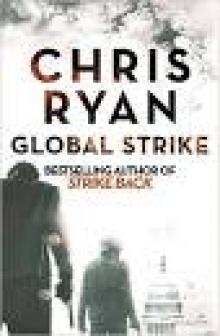 Global Strike
Global Strike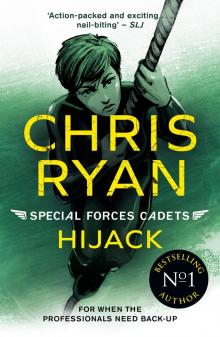 Hijack
Hijack Special Forces Cadets 2
Special Forces Cadets 2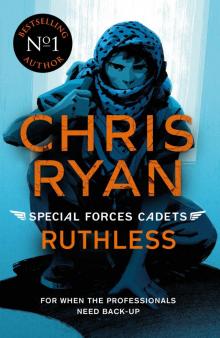 Ruthless
Ruthless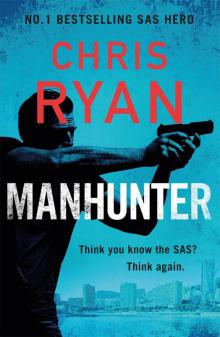 Manhunter
Manhunter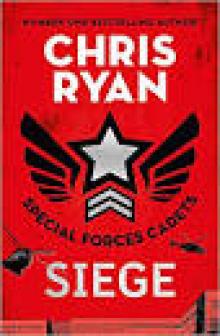 Special Forces Cadets 1
Special Forces Cadets 1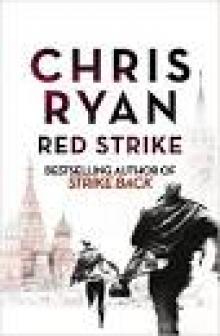 Red Strike
Red Strike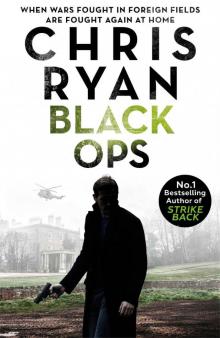 Black Ops
Black Ops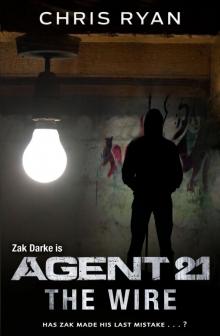 Agent 21: The Wire
Agent 21: The Wire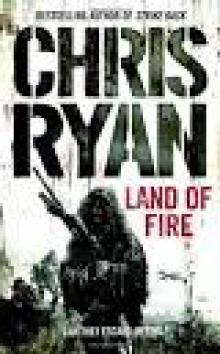 Land of Fire
Land of Fire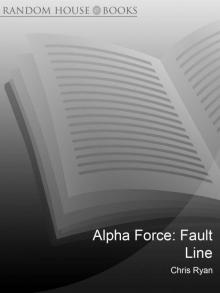 Alpha Force: Fault Line
Alpha Force: Fault Line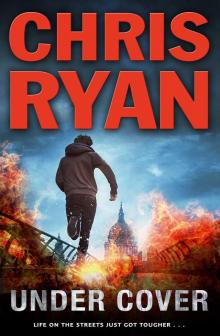 Under Cover (Agent 21)
Under Cover (Agent 21)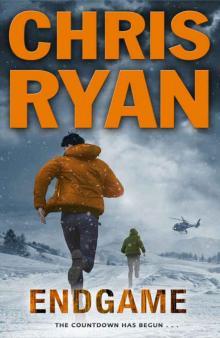 Endgame (Agent 21)
Endgame (Agent 21) Red Centre
Red Centre Blackout
Blackout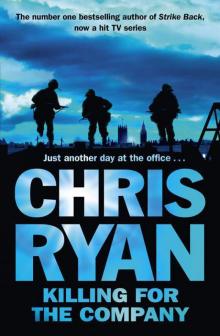 Killing for the Company
Killing for the Company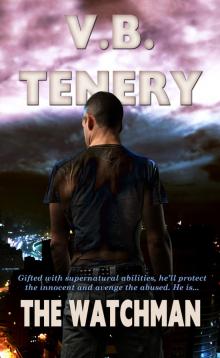 The Watchman
The Watchman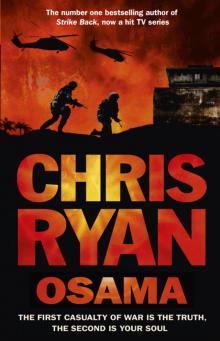 Osama
Osama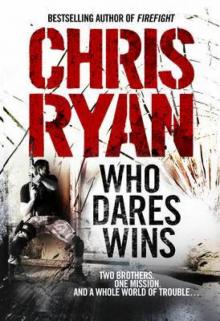 Who Dares Wins
Who Dares Wins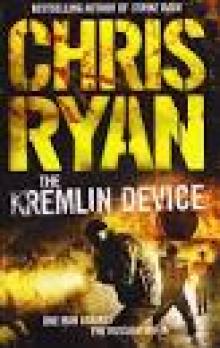 The Kremlin Device
The Kremlin Device Hunter Killer
Hunter Killer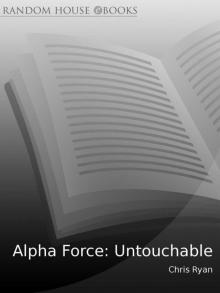 Alpha Force: Untouchable
Alpha Force: Untouchable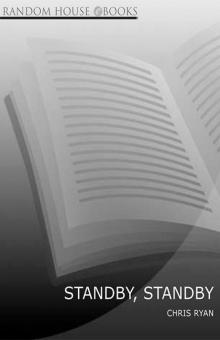 Stand By Stand By
Stand By Stand By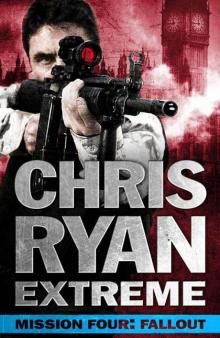 Chris Ryan Extreme: Hard Target: Mission Four: Fallout
Chris Ryan Extreme: Hard Target: Mission Four: Fallout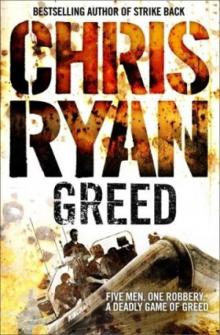 Greed mb-1
Greed mb-1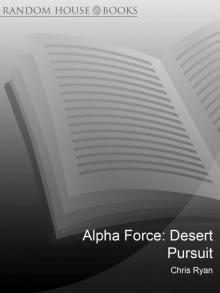 Alpha Force: Desert Pursuit
Alpha Force: Desert Pursuit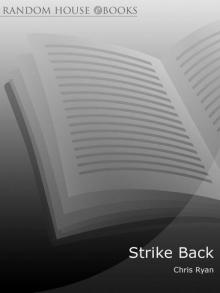 Strike Back
Strike Back Greed
Greed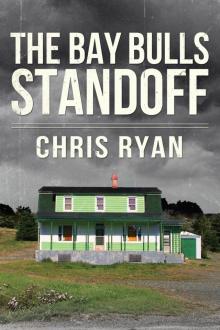 The Bay Bulls Standoff
The Bay Bulls Standoff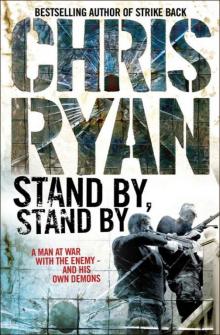 Stand By, Stand By gs-1
Stand By, Stand By gs-1 Outbreak
Outbreak Hunted
Hunted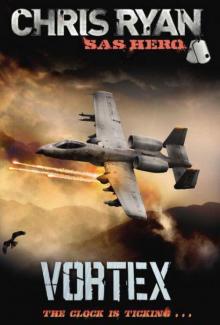 Vortex cr-4
Vortex cr-4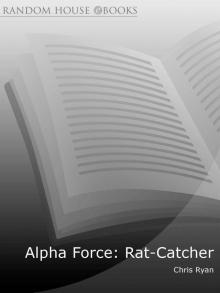 Rat-Catcher
Rat-Catcher Vortex
Vortex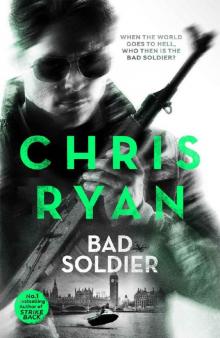 Bad Soldier
Bad Soldier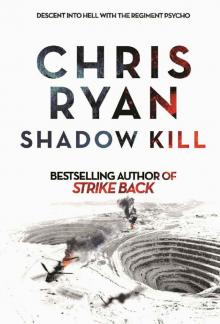 Shadow Kill: A Strikeback Novel
Shadow Kill: A Strikeback Novel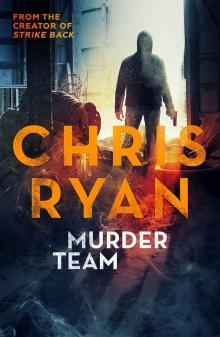 Murder Team (Kindle Single)
Murder Team (Kindle Single) One Good Turn
One Good Turn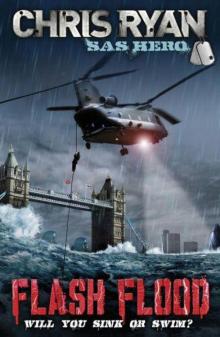 Flash Flood cr-1
Flash Flood cr-1 Night Strike
Night Strike Wildfire
Wildfire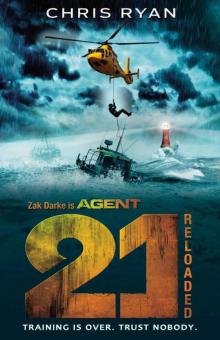 Agent 21: Reloaded: Book 2
Agent 21: Reloaded: Book 2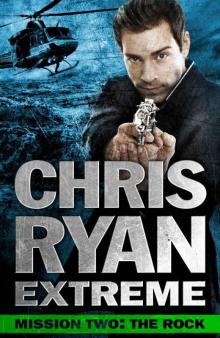 Chris Ryan Extreme: Hard Target: Mission Two: The Rock
Chris Ryan Extreme: Hard Target: Mission Two: The Rock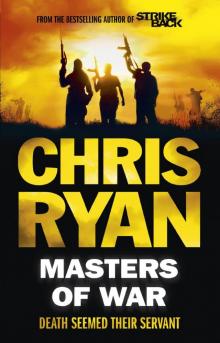 Masters of War
Masters of War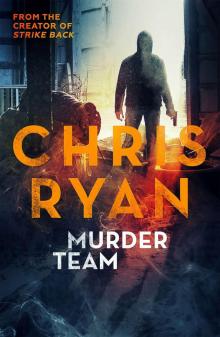 Murder Team
Murder Team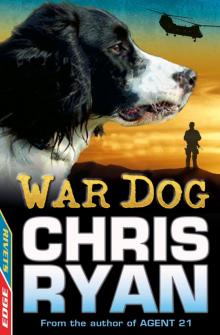 War Dog
War Dog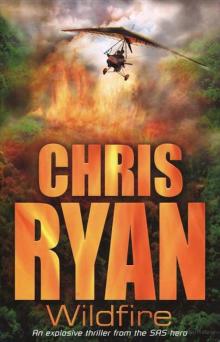 Wildfire cr-2
Wildfire cr-2 Survival
Survival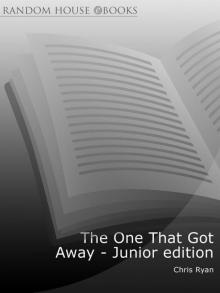 The One That Got Away - Junior edition
The One That Got Away - Junior edition The Hit List
The Hit List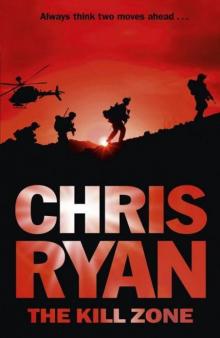 The Kill Zone
The Kill Zone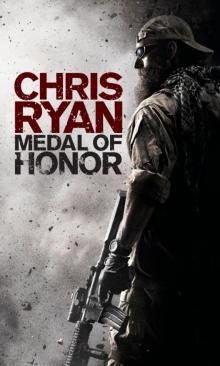 Medal of Honor
Medal of Honor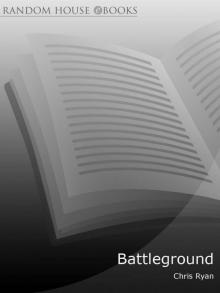 Battleground
Battleground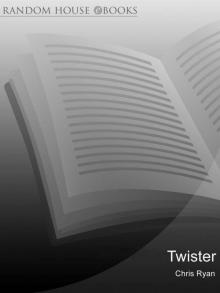 Twister
Twister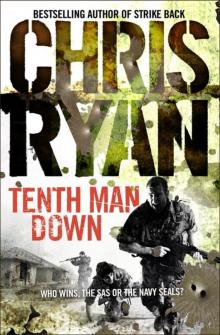 Tenth Man Down gs-4
Tenth Man Down gs-4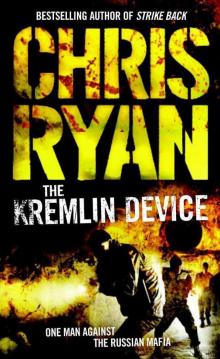 The Kremlin Device gs-3
The Kremlin Device gs-3 Hostage
Hostage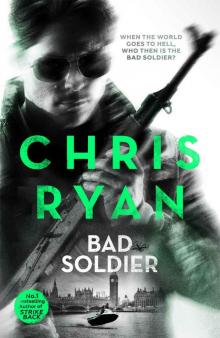 Bad Soldier: Danny Black Thriller 4
Bad Soldier: Danny Black Thriller 4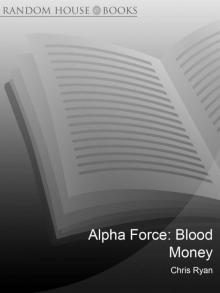 Alpha Force: Blood Money
Alpha Force: Blood Money Firefight
Firefight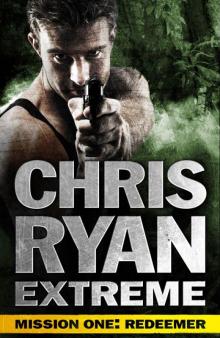 Chris Ryan Extreme: Hard Target: Mission One: Redeemer
Chris Ryan Extreme: Hard Target: Mission One: Redeemer Hit List
Hit List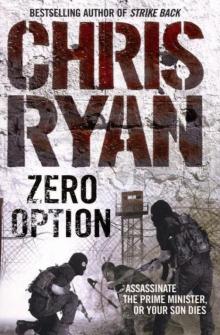 Zero Option gs-2
Zero Option gs-2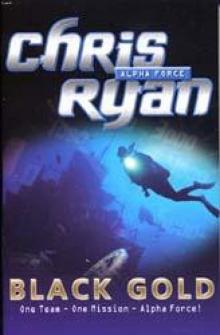 Black Gold
Black Gold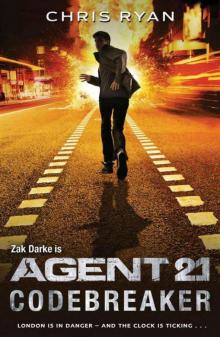 Agent 21: Codebreaker: Book 3
Agent 21: Codebreaker: Book 3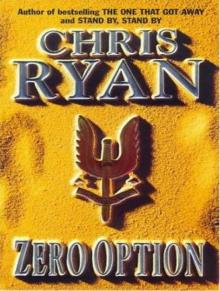 Zero Option
Zero Option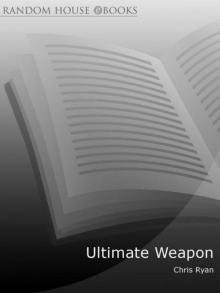 Ultimate Weapon
Ultimate Weapon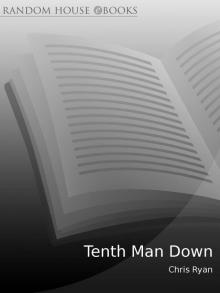 Tenth Man Down
Tenth Man Down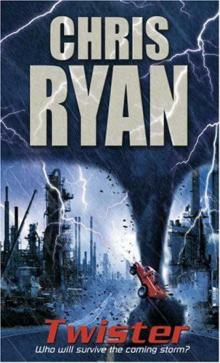 Twister cr-5
Twister cr-5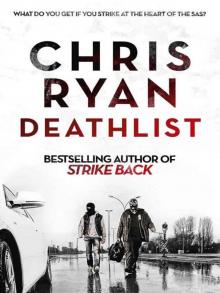 Deathlist
Deathlist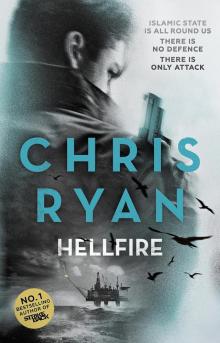 Hellfire
Hellfire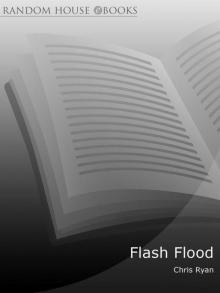 Flash Flood
Flash Flood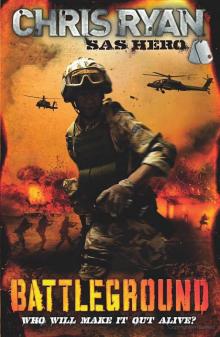 Battleground cr-6
Battleground cr-6 The Increment
The Increment